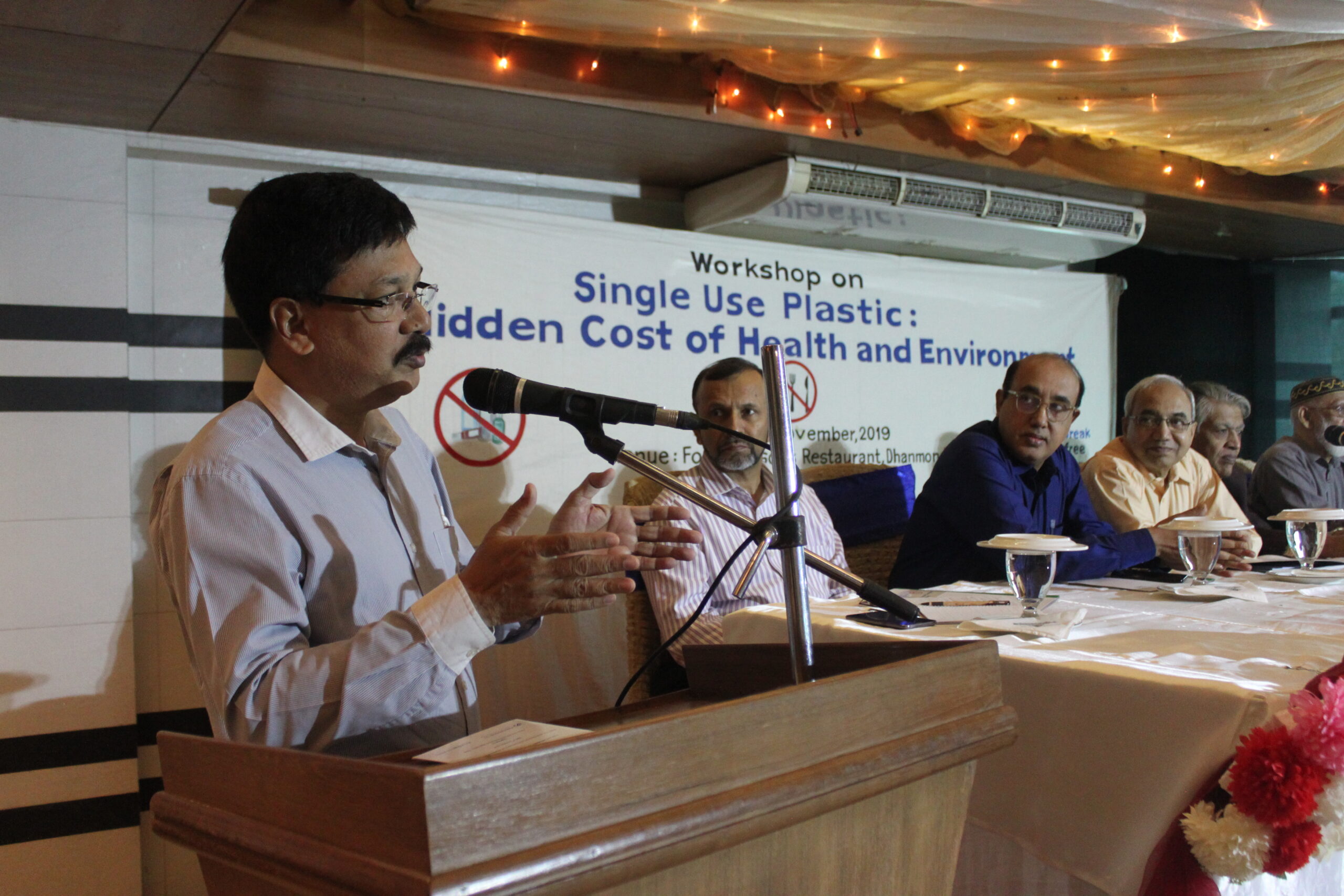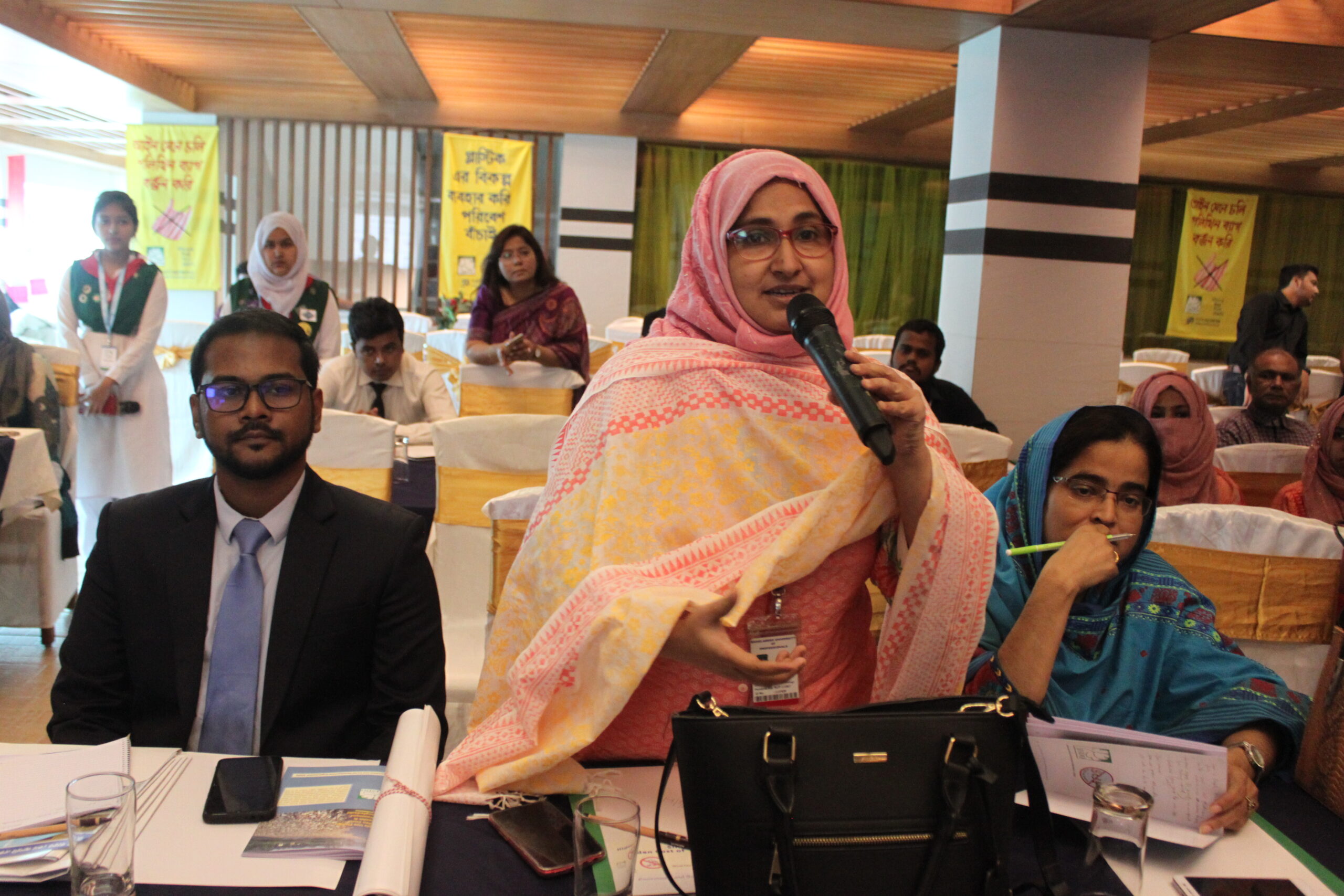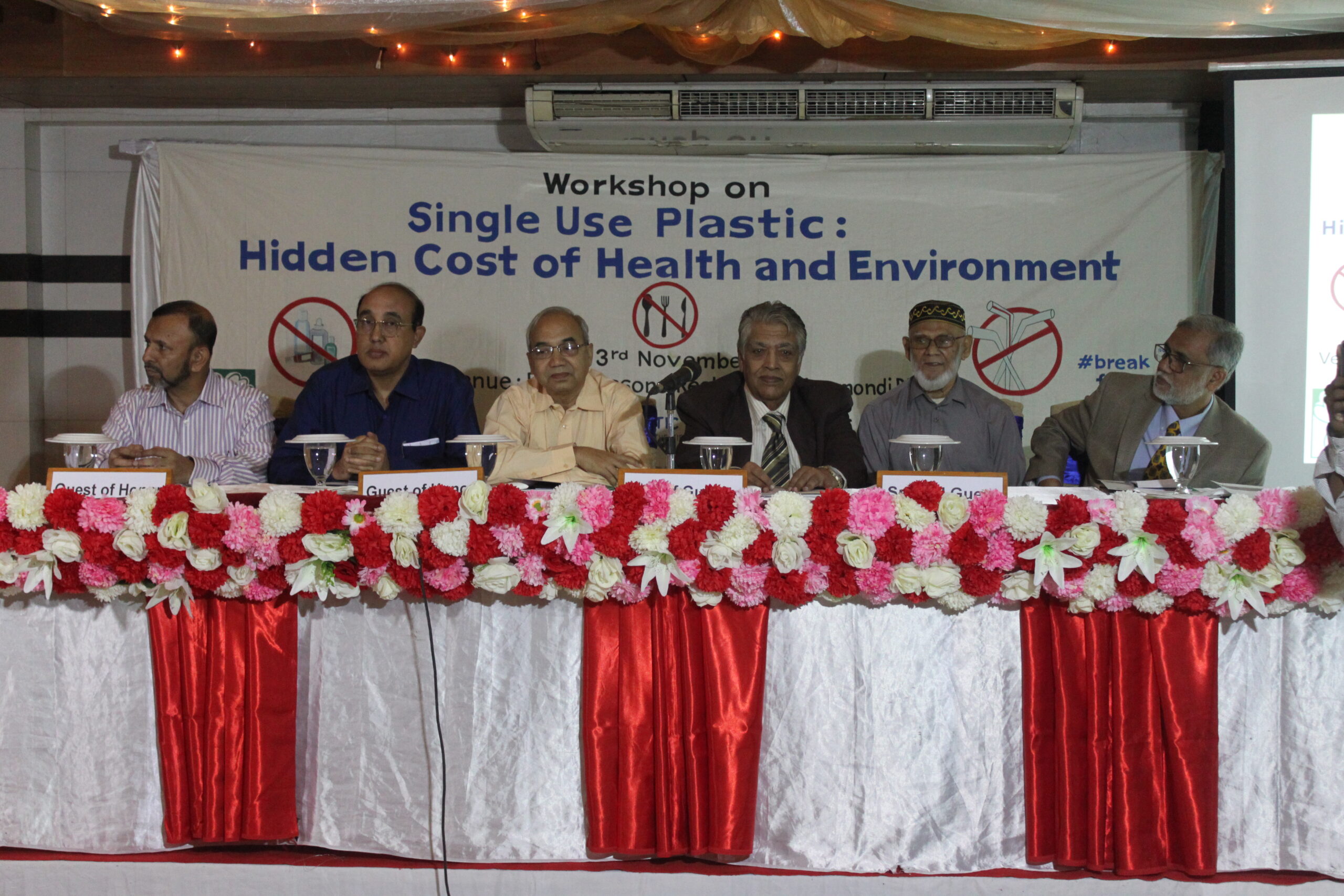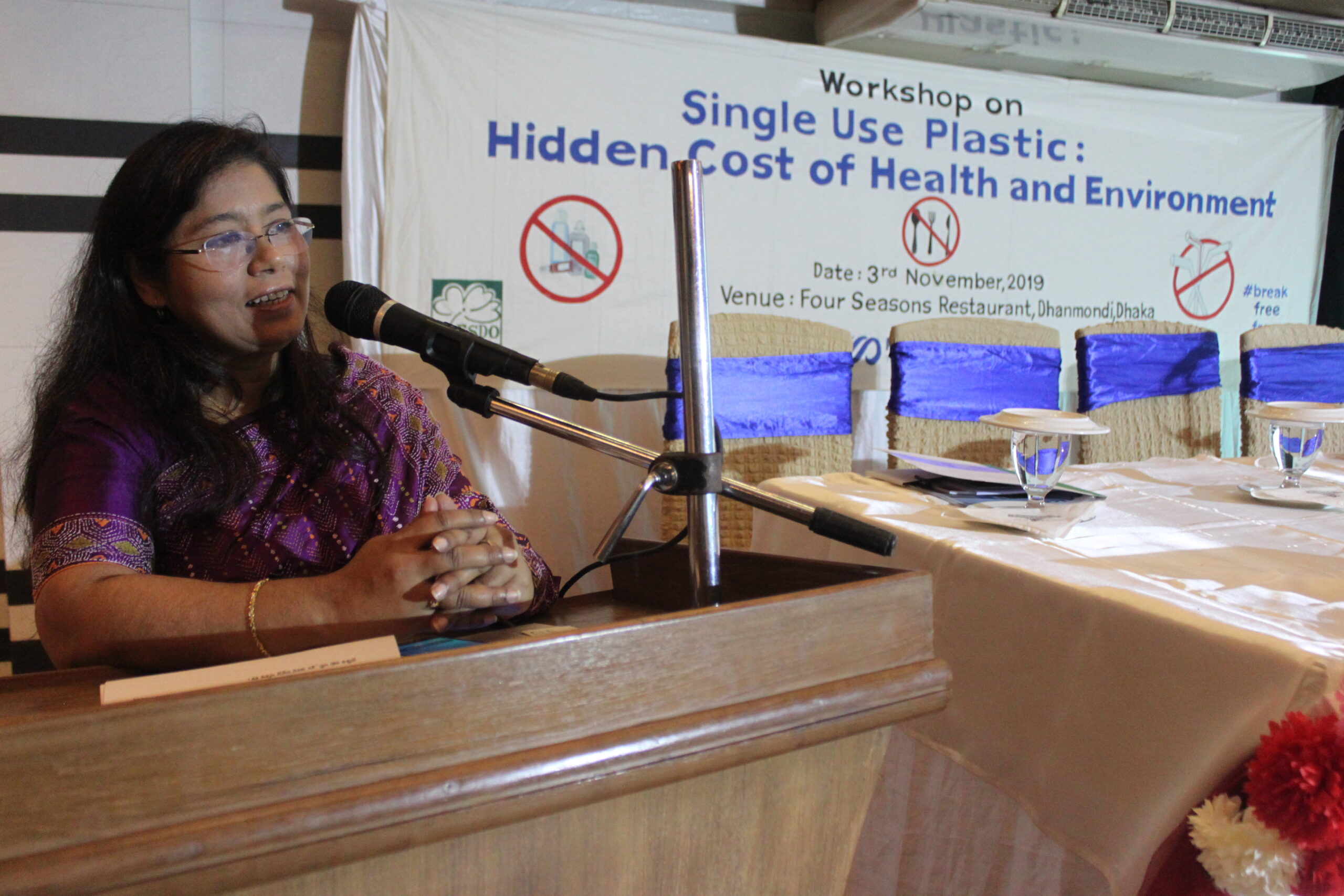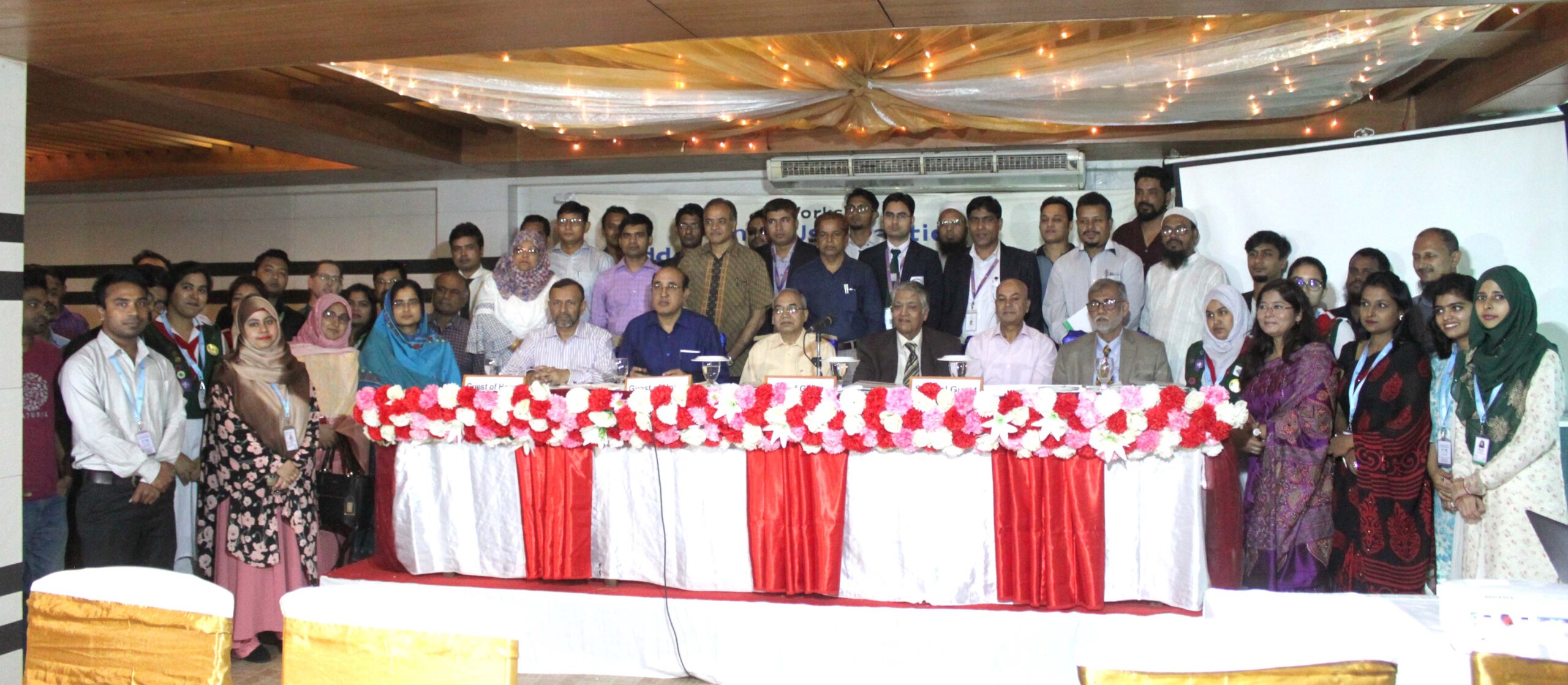Dhaka, 3rd November, 2019: Every year, about 87,000 tonnes of single-use plastic are thrown away in Bangladesh. The findings revealed from ESDO study. Considering the serious health and environment impact, single use plastic needs to be banned as soon as possible. An awareness and consultation workshop entitled “Single Use Plastic: Hidden Cost of Health and Environment” was organized by Environment and Social Development Organization- ESDO on Sunday at Four Seasons Restaurant, Dhaka.
The workshop revealed present scenario of using single use plastic in Bangladesh. Former Secretary of People’s Republic of Bangladesh and the Chairperson of ESDO Syed Marghub Murshed graced the event as the Chief Guest. He said, “Plastic pollution is an immense environmental problem that requires an immediate solution. Government should take initiatives to ban the single use plastic.” He said, “There are enough innovative alternatives that can promote and encourage for mass uses.”
Advisor and Head of ESDO technical Committee: Mokhlesur Rahman, Former Additional IGP, Bangladesh Police, Professor Dr. Md. Abul Hashem, Former Professor, Department of Chemistry, Jahangirnagar University and Professor Abu Zafar Mahmud, Former Professor, Department of Chemistry, University of Dhaka was present at the workshop. Secretary General of ESDO Dr. Shahriar Hossain, and Executive Director, Siddika Sultana and other team members of ESDO were present on this workshop. However, the workshop was attended by many stakeholders from different sectors including experts, activists, academicians, policy makers, media and general mass.
Single-use plastics are those plastic which can be used only one time before thrown away or recycled. Plastics are made up of many chemical components that are released into the environment when improperly disposed. In addition, many types of plastics contain additives. People are exposed to these chemicals not only during manufacturing, but also by using plastic packages, because some chemicals migrate from the plastic packaging to the foods they contain. Contamination from plastic packaging can give rise to the gradual development of chronic health problems as serious as endocrine disruption, which can lead to cancers, birth defects, immune system suppression and development of problems in children. However, serious damage to respiratory, renal and cardiovascular systems is also induced from the continuous use of chemically contaminated single use plastic products.
Plastic Teabags release billions of microparticles and nanoparticles into Tea. A very recent study report disclosed that the widespread use and mismanagement of plastics has led to a significant environmental burden of growing concern. Plastic from consumer goods can break down into microplastics and nanoplastics complicating their detection and quantification. The nano-sized fraction of plastic is particularly difficult to identify in complex organic matrices such as soils and foods. Microplastics defined as particles ranging from 100 nm to 5 mm in size and nanoplastics as particles ≤100 nm in size.
Professor Abu Zafar Mahmud expressed his opinion by saying “Plastic pollution is a significant environmental problem. Single Use Plastic leached toxic substances gets accumulated in the environment by contaminating air, water and soil, from there humans inhale and ingest these and suffer from vulnerable impacts. So immediately we need efficient solution otherwise we can’t control the flow of plastic pollution.”
Professor Dr. Md. Abul Hashem said. “At every stage of its lifecycle, plastic poses distinct risks to human health, arising from both exposures to plastic particles themselves and associated chemicals. People worldwide are exposed at multiple stages of this lifecycle.”
To cut down on plastic pollution, ESDO is putting forth recommendations for consumers and for the government. ESDO strongly recommends that the government of Bangladesh pass a complete ban on SUP. “Bangladesh must follow the example of India and other nations in banning single-use plastics, or we risk being overwhelmed as manufacturers and importers turn their attention on us,” says ESDO Secretary General Dr Shahriar Hossain. “Banning single-use plastics is a necessary move to protect the health and environment of Bangladesh. Fortunately, cost-effective alternatives are widely available.” For instance, straws made up of bamboo sticks are being widely used and manufactured in hilly regions of the country. In Kushtia district, compostable ice cream cups are produced from leaves. “Local production of plant-based alternatives can provide rich opportunities to increase local sustainable manufacturing and jobs throughout Bangladesh,” explains ESDO Executive Director Siddika Sultana.
Although Bangladesh banned single-use plastic shopping bags in 2002, ESDO notes that the country has fallen behind in regulation since then. Most recently, India has announced a ban on all forms of single use plastic in October 2019, and seeks to completely phase out single use plastic products by the year 2022. The island of Bali, Indonesia has banned single use plastics including bags, straws and Styrofoam as of July 2019. France is the first country to announce a total ban on SUP, to be effective from 2020. London plans to impose ban on the usage of single use plastics to be implemented from April 2020.
Background Information:
In 1989, under the leadership of Dr. Shahriar Hossain a few enthusiastic people initiated anti polythene campaigning in Bangladesh. ESDO is the first organization initiated campaign against the single use plastic shopping bag in 1990 and organized a nation-wide anti-polythene campaign. After long efforts ESDO is succeeded to ban the production and use of polythene in January 1, 2002 in Dhaka city and March 1, 2002 in countrywide. Now ESDO is focusing on banning single-use plastics (SUP).
For more Information:
Nazma Ahmed
Program Associate, ESDO
E-mail: nazma@esdo.org
Mobile: 01557019412

